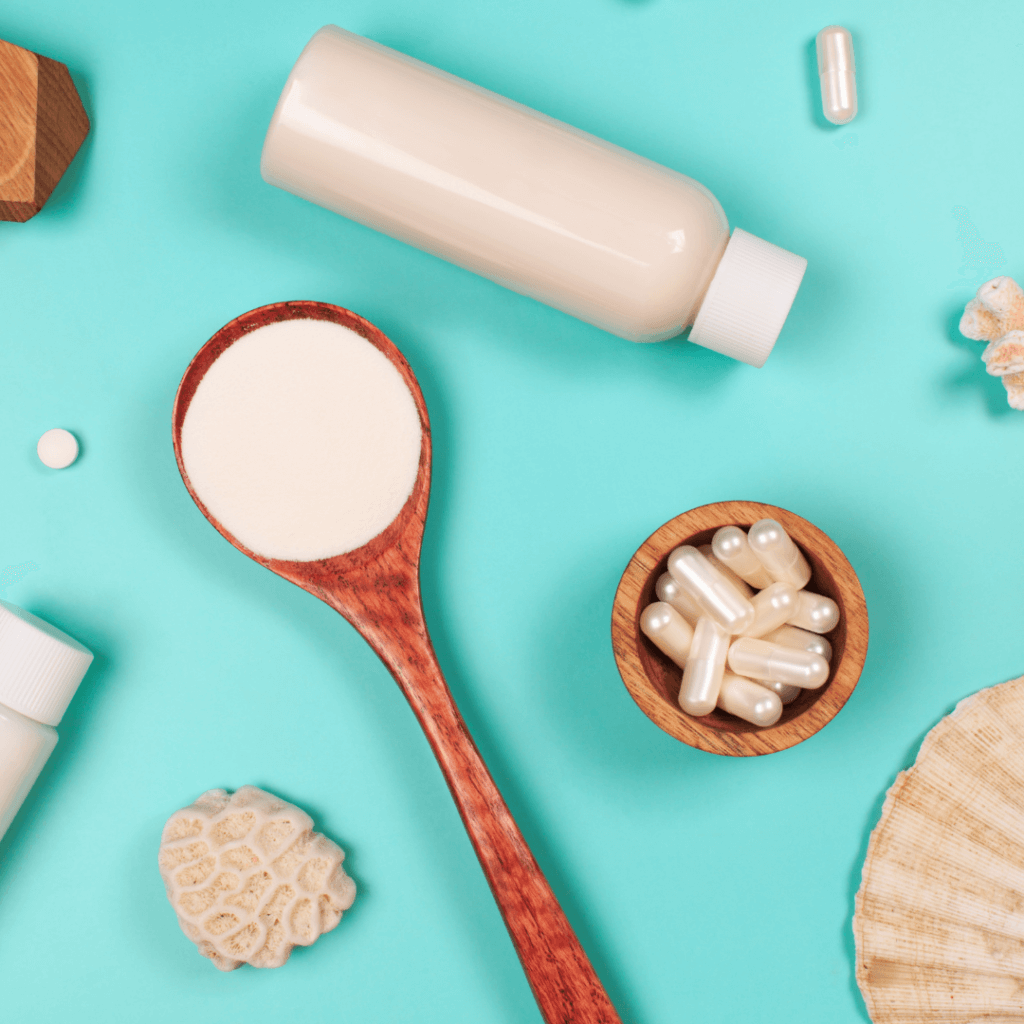
The African collagen market is expected to experience 6% growth by 2025, with South Africa holding the bulk of the market share.
However, with the product’s increasing popularity, various local and global manufacturers have claimed that they have brought “vegan collagen” to market to meet the rising trend of veganism. This trend is taking place on South African shores where the Uber Eats Cravings Report recorded a 42% increase year-on-year in vegan orders in 2021.
“There really is no such thing as ‘vegan collagen’, so the use of this particular term is misleading. Collagen is, by definition, an animal product, created in animal bodies including our own,” says Toni Carroll, founder and CEO of nutricosmetic brand My Beauty Luv. “As such, vegans who are concerned about the collagen levels in their bodies, especially as they get older, have a choice of two strategies: either stimulate their bodies to make more collagen or counter the degeneration of their existing collagen.”
Keeping collagen levels high in a vegan world
She continues, “Certainly, there are many plant-based products that will help vegans stimulate their own bodies to create collagen. However, vegans need to be careful about products that make wild claims or label their products as ‘vegan collagen’.”
Carroll explains that a supplement will either work directly, as in the case of animal hydrolysed collagen powder, or indirectly as with vitamin C and magnesium, to promote collagen production in the body. Plant-based supplements work through the indirect model, and some non-animal substances have far greater benefits than others.
“Taking pea protein and other powdered plant proteins – two basic ingredients that comprise the majority of products on the market for vegans – will not make your body synthesise collagen production,” she warns. “It is critical to take the full spectrum of essential and non-essential amino acids but finding a vegan source of amino acids can be tricky, so read your labels carefully. Another top tip for healthy collagen production is simply making sure you get a good night’s sleep every night and to obtain your vital vitamins and minerals through high-quality fruits and vegetables instead of through supplementation alone”
In terms of safeguarding existing collagen levels, Carroll says that the key is antioxidants. “Luckily for vegans, most antioxidants are found in non-animal sources, so it is very easy to obtain a plethora of these along with other vital nutrients that help with healthy skin metabolism”.
“Both approaches are important, as there are far too many external and internal factors -unrelated to what we ingest – that play a role in the health of our collagen levels and how our body will or will not produce collagen effectively.”
A vegan-friendly alternative
Carroll has developed a vegan-friendly skin supplement that contains ingredients that enhance both collagen production and conservation.
“Our new vegan-friendly skin booster will contain four highly active and medicinal ingredients that have been used for thousands of years in the East for skin beauty. These have recently undergone modern testing methods and have been found to greatly improve the skin matrix. Three of these ingredients are exclusive to my brand, and we are the first in the world to incorporate them in a formulated, functional supplement,” she explains. These products include Sakura flower petal extract, Tremella mushroom, Cauliflower mushroom and Wood (Jew’s) ear mushroom.
The ingredients are all 100% natural, certified organic and certified halal and kosher. The benefits include type 1 collagen synthesis by promoting healthy fibroblast activity, improving pigmentation at cellular level, increasing hyaluronic acid production in skin cells, and protecting against UV damage, alongside other skin-beautifying benefits.
“At the end of the day, reading the label on any product is essential for knowing exactly which ingredients you are putting into your body, what the benefits are and if the promise of what’s being sold to you is true,” Carroll concludes.

